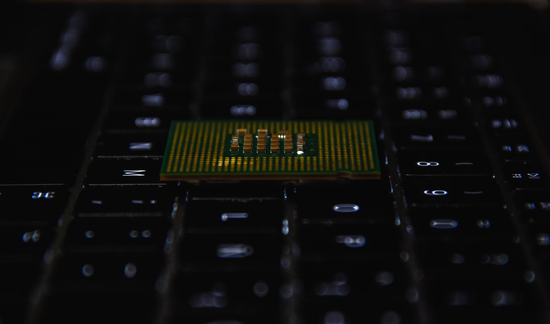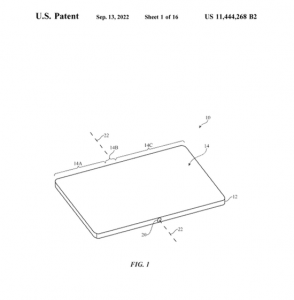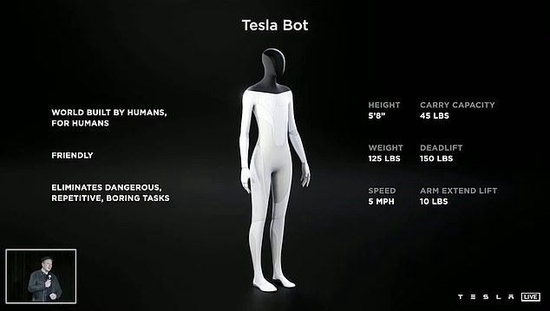your current location is:Home > investHomeinvest
Sun Zhengyi lost 150 billion: it was expensive at the beginning
The 64-year-old Sun Zhengyi looked solemn——
"We are responsible for the decision to buy startups at the top of the market." Yesterday (August 8), SoftBank Group released its second-quarter financial report this year, and founder Masayoshi Son made a sad promise. The financial report shows that SoftBank Group has lost more than 23 billion US dollars (about 155 billion yuan) in the past three months. Without a doubt, it was a record loss, once again leading to the biggest hole in VC history.
Among them, up to 110 billion yuan of losses came from SoftBank's Vision Fund. In the past few years, the SoftBank Vision Fund’s play in the primary market has been impressive – it is willing to give high valuations, dare to give high valuations, and no one can match the crushing style of playing without caring about valuations. For a long time, this style of play has brought Sun Zhengyi the super unicorn that is almost worthy of the name in the world. However, now, the once crazy has no one to pay - the investment is expensive .
This lesson is also worthy of reflection by all VCs in China - how generous the initial investment may be, how ugly it may be to settle accounts later.
Epic hole: Lose 150 billion in three months
Reduce investment across the board
"This is the company's biggest loss since its establishment," Masayoshi Son said frankly at the earnings conference. He even stressed that the situation could be even worse now than in June.
Specifically, the main reason for SoftBank's huge losses is still the two phases of SoftBank Vision Fund. The financial report shows that the two funds lost a total of 2.3 trillion yen (about 115.2 billion yuan), higher than the record 2.2 trillion yen loss in the previous quarter. Among them, the first phase of SoftBank Vision Fund holds a total of 80 investments, including 23 listed companies. The unrealized valuation losses for publicly traded portfolio companies totaled $6.8 billion as the stock prices of these tech stocks have slumped this year.
The most shocking case is the South Korean e-commerce giant Coupang , where SoftBank’s floating losses have reached $2.37 billion. What is astonishing is that just a year ago, Coupang was another classic investment by Masayoshi Son after Alibaba.
Coupang is known as the Korean version of Alibaba. In March last year, Coupang was successfully listed on the New York Stock Exchange, and its share price rose 40% on the first day. SoftBank, Coupang's largest shareholder, reaped a paper return of $24.5 billion in one fell swoop. However, Coupang’s share price has been falling since its listing, with a staggering 40% drop in the first quarter of this year, and its latest market value is only about $34 billion.
The tragic scene was also staged in the second phase of the Vision Fund. Although the second fund is smaller, it still holds 269 investments, which is more aggressive in terms of numbers. According to the financial report, in the first fiscal quarter (April to June), in addition to selling shares of Chinese unicorn Shell for $3 billion, the unrealized valuation loss recorded by the second-phase fund was $9.8 billion. Losses totaled $3.839 billion, mainly due to falling shares of Norwegian warehouse robotics companies AutoStore and WeWork.
As the so-called "people's hearts are scattered, the team is not easy to lead" , Sun Zhengyi's generals are quietly leaving.
According to Bloomberg, as the head of the second phase of the Vision Fund, Rajeev Misra has recently left SoftBank and started his own investment fund; at the same time, the two partners of the Vision Fund, Yanni Pipilis and Munish Varma, have also resigned. To this end, Masayoshi Son can only personally take over as CEO of SoftBank Vision Fund Phase II. Earlier this year, COO Marcelo Claure also announced his departure. Roughly calculated, more than ten executives have left SoftBank in the past two years, which is undoubtedly worse for Son.
In fact, Sun Zhengyi and the team have already smelled the danger. In March of this year, a managing partner of SoftBank Vision Fund was the first to convey SoftBank’s attitude at a meeting in Los Angeles: plans to reduce investment. Then, at the 2021 fiscal year annual report meeting, Masayoshi Son rarely announced an official slowdown of investment: SoftBank will adopt a conservative investment pace. He also gave a specific figure: Compared with last year, the investment will be halved or a quarter this year.
Interestingly, on the first page of the PPT used by SoftBank at the financial report meeting, there is a painting of the Japanese historical figure Tokugawa Ieyasu, describing the Battle of Japan's Three Kingdoms in 1573. At that time, Takeda Shingen was preparing to enter Kyoto and fought with Tokugawa Ieyasu. Due to the disparity in strength between the two sides, Tokugawa Ieyasu's army was defeated, and more than 1,600 people were lost in the first battle. According to legend, Tokugawa wanted to cut his abdomen for a while because of this defeat, and was even scared to the point of incontinence.
After the incident, Ieyasu Tokugawa asked the painter to draw a portrait of himself with a frown, which was called a "frowning image" to remind himself not to have a more embarrassing situation in the future.
Obviously, Sun Zhengyi is borrowing paintings to warn himself.
Cash out 150 billion yuan from Ali this year
Sun Zhengyi sells to survive
Cashing out to survive has become Sun Zhengyi's most urgent job at the moment.
If all goes well, Son will receive a huge sum of $66 billion from Nvidia, but the acquisition transaction around ARM finally failed in February this year. Time does not wait, SoftBank quickly started preparations for ARM's independent IPO, saying that it may list ARM on Nasdaq by March 2023. This option was subsequently added to the London Stock Exchange, following lobbying by the UK government.
But the plans couldn't keep up with the changes. According to the "Financial Times" report, in order to get ARM listed in London, or at least partially in London, then British Prime Minister Johnson personally lobbied Sun Zhengyi; Investment Minister Gerry Greenstone and Digital Minister Chris Phelps , also played a leading role in negotiations with SoftBank. With the resignation of the above-mentioned three people, SoftBank stopped the discussion of ARM's listing in the UK next year. Masayoshi Son has previously stated that part of the reason for ARM's listing in London is due to pressure from the British government.
Recall that in 2016, Sun Zhengyi spent 32 billion US dollars (about 216.2 billion yuan) to acquire ARM , creating the most sensational acquisition of the year. At that time, he had said that ARM would be the future of SoftBank Group. Unexpectedly, ARM has now become the hottest potato in Sun Zhengyi's hands. At yesterday's earnings meeting, Sun Zhengyi even refused to comment on ARM's problems, but said that ARM's things were going well, "This is the only thing I can say today."
Masayoshi Son also revealed that in the second quarter, SoftBank raised $10.5 billion (about 71.085 billion yuan) using prepaid forward contracts for Alibaba stock, and raised another $6.8 billion in the same way on July 1. , providing the group with a "good cash position". This means that SoftBank has sold more than half of its Alibaba shares so far this year , raising a total of $22 billion (about 150 billion yuan).
When asked if there was room for further financing with Alibaba shares, Son said he was "considering the matter" based on the stock price and SoftBank's own financial position, but did not elaborate further.
At the same time, SoftBank has started new negotiations to sell the asset management company Fengbao Investment Group, which it acquired in 2017. "We are ready to listen to potential buyers with an open mind." Obviously, Masayoshi Son wants to cut the meat again. .
Earlier this year, SoftBank quietly exited self-driving unicorn Cruise . General Motors announced on March 19 that it would buy the stake in Cruise, a subsidiary of SoftBank Vision Fund, for $2.1 billion, expanding GM's stake in Cruise to 80 percent. GM also said it would invest an additional $1.35 billion in Cruise to replace a commitment made by the SoftBank Vision Fund in 2018.
In the deal, SoftBank made a solid profit. According to the data, SoftBank had previously invested about $1.2 billion in Cruise, and the $2.1 billion sale was equivalent to making $900 million (about 5.7 billion yuan). As a trader who has raised Cruise's valuation to $30 billion, Masayoshi Son hastily abandoned this self-driving company second only to Google Waymo, which is really helpless.
Then in mid-April, SEC filings showed that the SoftBank Vision Fund sold 50 million Coupang shares worth a total of $1 billion. This is the second time SoftBank has sold a stake in the South Korean e-commerce giant in at least a few months. The price of the shares sold was only $20.87 per share, which was nearly 30% lower than the issue price of Coupang in September last year.
Still, Masayoshi Son believes that the next Alibaba could still be born out of existing investments. "These portfolios have impressed me and I continue to believe in them."
Leave a profound lesson for Chinese VCs:
Pay for high valuations
How did the former "investment madman" get to this point?
At yesterday's earnings conference, Sun Zhengyi publicly reflected on the Vision Fund's "search for unicorns" investment strategy. He admits to taking responsibility for his decision to buy startups at the top of the market , while pledging to cut spending to get back on track. "If we pursue our vision unilaterally, we risk failure, and now we must avoid this situation at all costs." To sum up, Sun Zhengyi admitted that the investment was expensive at the time, and the consequences of high valuations are gradually emerging. .
However, earlier last year, Masayoshi Son didn't seem to be aware of the high valuation bubble. He even accused team employees at the meeting: "The valuation of startups is still soaring, and your investment is not aggressive enough!" How long ago, the high valuation strategy that worked before quietly dragged SoftBank into the abyss step by step.
In the past six months, the tragic situation of the secondary market is vivid in my eyes. Qiming Venture Partners partner Yu Jia reviewed at the 16th China Fund Partners Summit, "In terms of U.S. stocks, the Nasdaq top 100 technology company index NDXT has fallen three times since its peak in early November last year. The market value of the companies in the index has evaporated by a total of 2.8 trillion US dollars. The valuation of some technology companies in the US stock market has fallen to 20%, or more than 10% of the original high point. "This is a very exaggerated figure, It also caused heavy losses to many primary market investors.
Sun Zhengyi is paying for the high valuation of the past, and a similar scene is also being staged in China.
In the past few years, the madness of inflated valuations in China's primary market is obvious to all. First is the consumption and investment feast, with star projects rising from the ground up, whether it is new tea, coffee, ramen, or beauty, dim sum, hot pot, the level of valuation refresh is often jaw-dropping; then there is semiconductor financing, with angels over 100 million yuan Rounds of financing are overwhelmed, and soaring valuations have become commonplace.
"After so many years of investment, I suddenly found that the valuation account will not be calculated . Everyone is rushing for the wind. There are many 'star companies' that dare to be valued at several hundred million or one billion at the angel stage. The reality is But it simply cannot stand scrutiny." A partner of a local venture capital institution in Shenzhen once sighed to the investment community.
Yesterday's carnival is turning into today's tears. Since the beginning of this year, the primary market is facing severe difficulties in raising funds and exiting. Whether it is A shares or Hong Kong stocks, the phenomenon of breakouts emerges one after another, making it difficult for a group of VC/PE behind them to hide their loss. Even lost to the B round.
"According to the current market value of the secondary market, the valuation of the primary market has to drop again. Otherwise, how big the investment is now, how ugly the settlement will be later." When VC/PE has valuation anxiety, investment also begins slow down.
"Waiting for the valuation to come down" is a true portrayal of the current primary market. In fact, the vast majority of VC/PE still have surplus food, but now they cherish bullets more, hold their pockets tightly and silently wait for the project valuation to come to a reasonable position.
We have seen that the valuations of new consumer unicorns are falling collectively, and projects that could not be invested in last year have begun to let go. Semiconductors also began, and the founders of "I am willing to accept flat wheels" began to increase. In the fields of innovative drugs and SAAS, valuations have begun to decline and return to rationality. Recently, Reuters reported that Hema Xiansheng is seeking financing at a valuation of about US$6 billion, which is much lower than the US$10 billion valuation at the beginning of this year. In other words, in order to raise funds, Hema took the initiative to cut off the valuation of 4 billion US dollars, with a 40% discount.
For startups, lowering the valuation has become the most urgent thing. "Projects below the waist are basically unable to raise funds." This is a sigh of Chen Wenhui, vice chairman of the National Council for Social Security Fund, in a recent speech. If companies do not pay attention to the financing rhythm, they may run out of ammunition.
"One of the VC institutions I contacted said that they would not invest before October this year." A fund-of-funds partner shared that the reason was to wait and see while waiting for the valuation to drop. High valuations have become unbearable for the primary market, and everyone is watching.
Previous:U.S. court rules: AI systems can't patent inventions because they're not human
Next:64-year-old Sun Zhengyi self-examination: ashamed for coveting huge profits
related articles
Article Comments (0)
- This article has not received comments yet, hurry up and grab the first frame~












